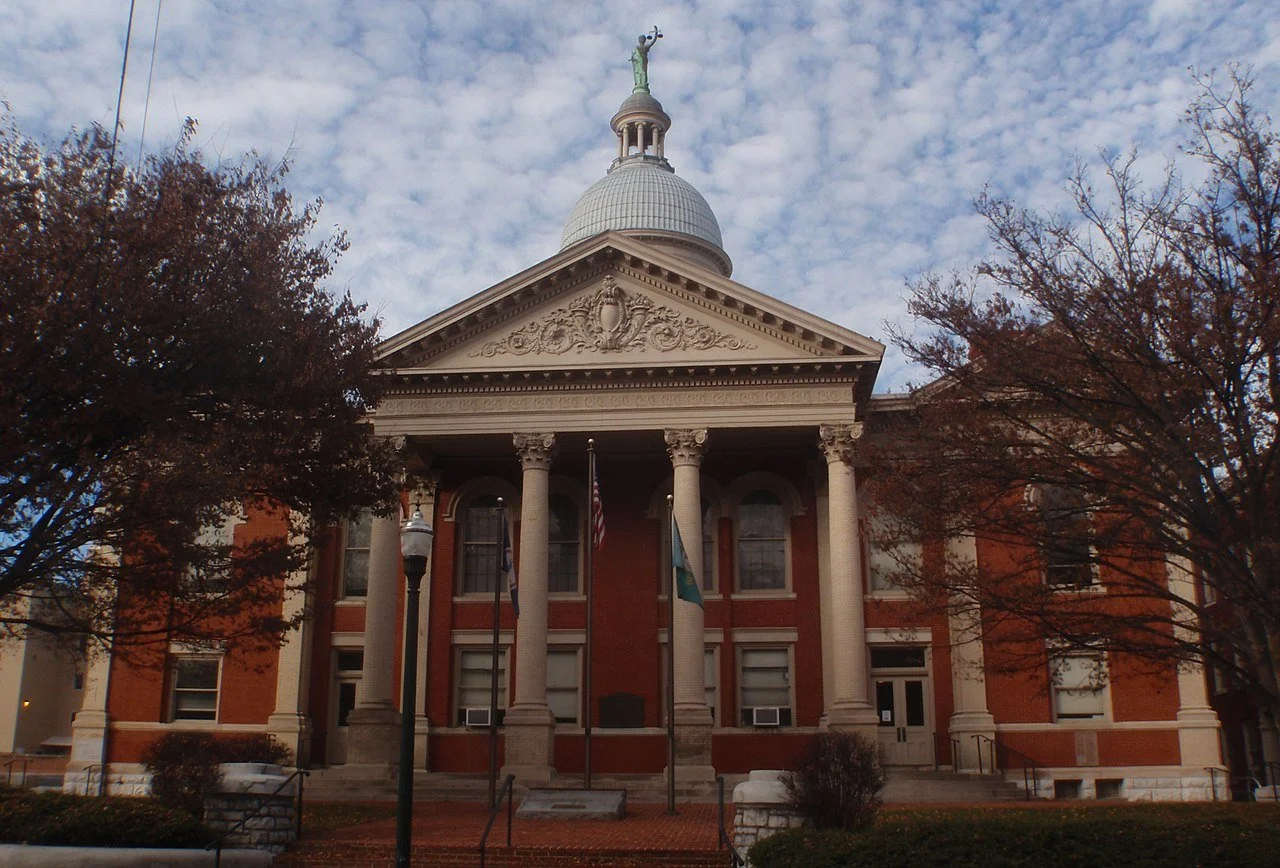Remember back in 2023 when everyone like me posted about the Mata v. Avianca case, which seemed to be the first (or at least, the first to earn national attention) case in which lawyers filed briefs with citations hallucinated by generative artificial intelligence. The lawyers ended up sanctioned, some of my nerd friends got a cool courtroom sketch out of it, and a lot of us thought that would be a sufficient cautionary tale. Don’t use AI if you don’t know what you’re doing, and make sure you check each citation if you do.
"I need to bail. What can I tell the court about why I'm withdrawing?"
I get this question a lot, and for good reason. On one hand: Every bit of information related to representation is presumptively confidential per Rule 1.6 and its state equivalents. (Different states interpret the rule differently; Wisconsin takes a particularly restrictive view.) On the other hand, if you need to move a court to withdraw, they usually want a reason (see Rule 1.16), and most of those reasons are going to contain, well, information related to representation.
DC Bar to Capitulating Law Firms: FAFO (plus: Ethicking is Six! And other news)
Greetings, folks, and I know, I know, I have been absent long enough that readers may wonder if “she blogs frequently at ethicking.com” (which is in various forms of my biography) is an 8.4(c) issue. (If I had readers who noticed, anyway.) As before, actual work plus the state of affairs has made blogging a bit spotty.
Stacie’s Explainer for What the Heck Happened with Gableman Last Week
Last week, a referee appointed by the Supreme Court of Wisconsin recommended that former Justice Michael Gableman’s license to practice law be suspended for three years, in accordance with a stipulation between the parties. This recommendation stems from Gableman’s actions in connection with an “audit” of the 2020 election.
So It’s Come To This: No, It Is Not Misconduct For A Lawyer To Say Mean Things On The Internet
This is something I shouldn’t have to write about at all, but I guess this is where we are. I’ve gotten some reports of lawyers being threatened with disciplinary complaints for posting about the killing of conservative activist Charlie Kirk on social media. I will not link to or screen-shot the posts here; we’ve all seen them, and the content isn’t really what’s driving the threatened complaints (it’s the politics of the posters and those making the threats). We will see in coming weeks whether these threats actually come to fruition (as it’s easy for JoeNameBunchanumbers to send a DM or leave a nasty message on a law firm voicemail), but in the meantime, I will reiterate:
No, it is not professional misconduct for a lawyer to say mean things about nearly anyone (or nice things about nearly anyone, for that matter) on the Internet.
Information Security Best Practices Are Stupid And I Hate Them
Last week, I traveled to Toronto, and attended the 2025 Association of Professional Responsibility Lawyers annual meeting. As always, I enjoyed hanging with my nerd friends and learning a lot. I completed my Board service after two terms.
Because international travel is a little ~interesting~ these days, I traveled with an inexpensive pay-as-you-go cell phone and an iPad instead of my usual phone and laptop. The goal here was to cross the border with no locally stored client data and, in fact, as little data as possible. Border agents have far broader leeway to search devices than other law enforcement officers; although statistics show detailed searches are exceedingly rare at United States ports of entry, I did not want to take the chance.
What's a little UPL between friends?
Making the social media rounds today is the Matter of Yu, a disciplinary decision out of New York, that is a case study in how not to be My Cousin Vinny.
That’s What Friends [May Not Be] For
Last week, I co-presented a session at the “Life Is a Highway: Handling Traffic Cases”* seminar at the State Bar of Wisconsin, with my friend Emily Bell. Our session was about dabbling—when you want to work on matters not in your normal areas of expertise, and sometimes without the preparation and training you need.
One of the topics we discussed is that “no good deed goes unpunished” thing when your friends know you’re a lawyer—they want you to handle their legal matters.
But can you?
Unconquered Suns and Orders to Show Cause
I like to think I’m up on current events. Prior to today, I was aware that members of the Proud Boys, who were convicted of various offenses stemming from the January 6, 2021 insurrection but later pardoned or had their sentences commuted by the current president, had sued the United States for $100 million. The case is venued in the Middle District of Florida.
But prior to today, I was unaware that (a) there was a lawyer named Augustus Sol Invictus involved in that case, and (b) there was a lawyer named Augustus Sol Invictus* at all.
I can't talk about a lot of things right now so here's a post on the intersection of legal ethics and morals
I logged in to my blogging portal and realized it has been nearly two months since I’ve written anything. It has been an incredibly busy two months, and there are a lot of things I cannot blog about right now.
Lawyering in a Time of Lawlessness (And Also Probably Cholera)
Since I last wrote about this subject, my nerd association put out a statement condemning the current administration’s attack on lawyers., in response to executive orders purporting to revoke security clearances and restrict lawyers’ ability to practice, against Covington & Burling, but Perkins Coie. After the APRL statement, the administration issued a similar order against Paul, Weiss, Rifkind, Wharton & Garrison LLP (Paul, Weiss).
Today, however, the administration announced that Paul, Weiss has capitulated to its demands.
Play Everything-On-Fire Games, Win Everything-On-Fire Prizes
We learned this afternoon that several Democratic members of the US Senate filed a Request for Disciplinary Investigation with the DC Office of Disciplinary Counsel against Interim US Attorney for the District of Columbia Ed Martin.
Setting The Rule Of Law On Fire, Just To Watch It Burn
So I’ve added a tag to my blog, “Everything on Fire.” It may be partially self-explanatory, but I am adding it to blog entries that discuss the contempt for the rule of law held by the current federal administration, among others. I’ve gone back and tagged a few prior entries as well. I am not sure these entries will always have a specific legal ethics bent (they will, at least, touch on lawyers and law practice), but the rule of law is important and this is my blog and at least in this virtual space, I can do what I want.
Today’s entry concerns the president doing what he wants, except instead of his blog, it’s the whole country, and he’s doing a lot of things he’s not supposed to be doing. This month, he has taking retributive action against his perceived rivals, including lawyers who have sparred with him and his administration (current and past).A couple of weeks ago, he at least purported to revoke the security clearances of lawyers Mark Zaid and Norm Eisen, without any real justification or due process.
Dead Men Neither Wear Plaid Nor Render Opinions To A Reasonable Degree of Professional Certainty
Taking a break from everything being on fire to report this quick hit (h/t several people on BlueSky): every judge interprets the Daubert standard (or whatever standard applies in their state) a little different, but I assure you that a qualification for anyone to testify as an expert witness on any subject is that they must be alive.
Bondi Blues
Earlier this week, and mostly along party lines, the Senate confirmed Pam Bondi to serve as the United State Attorney General.
You will note that this job is not called “Attorney General of the President,” and at least for now, the Department of Justice’s website includes this definition:
The Judiciary Act of 1789 created the Office of the Attorney General which evolved over the years into the head of the Department of Justice and chief law enforcement officer of the Federal Government. The Attorney General represents the United States in legal matters generally and gives advice and opinions to the President and to the heads of the executive departments of the Government when so requested. In matters of exceptional gravity or importance the Attorney General appears in person before the Supreme Court. Since the 1870 Act that established the Department of Justice as an executive department of the government of the United States, the Attorney General has guided the world's largest law office and the central agency for enforcement of federal laws.
Shortly after she was confirmed, Bondi issued a memo in which she seems to have announced that the Department of Justice is actually there to represent the President and his interests.
You Get A Conflict! And You Get A Conflict! Everybody Gets a Conflict!
Edward Martin, interim US Attorney for the District of Columbia, was present outside the Capitol on January 6, 2021, and later defended three people charged with crimes related to the insurrection. The case against one of his clients, Joseph Padilla, was still ongoing when Trump took office and pardoned nearly everyone involved in the riots.
Are They Buying What You're Selling?
The gist of the ad I viewed is that family law attorneys should be relying on “non-attorney salespeople” to close high-net-worth divorce cases, presumably so the attorneys could work on their cases and make more money. As I do not wish to book a call to find out if this two-day seminar (which costs an amount of money not disclosed in the ad or on the advertiser’s website, and would require out-of-state travel) is right for me, there seems to be no good way for me to find out exactly what they’re teaching about the use and supervision of such salespeople, but hey, it prompted this blog entry.
Daddy Sang Bass, Mama Sang Ethics
If any of you are in need of 2.5-3 on-demand ethics CLE hours (depending on how your state counts time), or are curious about what happens when people who are not me* try to make ethics CLE fun, Cleveland-based Squire Patton Boggs has created a free long-form ethics CLE musical. (Hey, I run a legal ethics snark blog, I’m not judging.)
Quick Hits from Elsewhere
I’m working on some longer pieces and on my actual job, so for now, a few quick hits.
Should strangers get to file grievances? Arizona says "maybe, but."
Some interesting (if you are me) news came out of Arizona this week: Its Supreme Court approved a rule change limiting the ability of people not directly involved in, or who do not have first-hand knowledge of, a particular matter to pursue ethics complaints.








![That’s What Friends [May Not Be] For](https://images.squarespace-cdn.com/content/v1/5d93821f16ea12193a39cbf7/1751490714546-QHBUIOPLPH77FYYNV590/unsplash-image-LjqARJaJotc.jpg)











